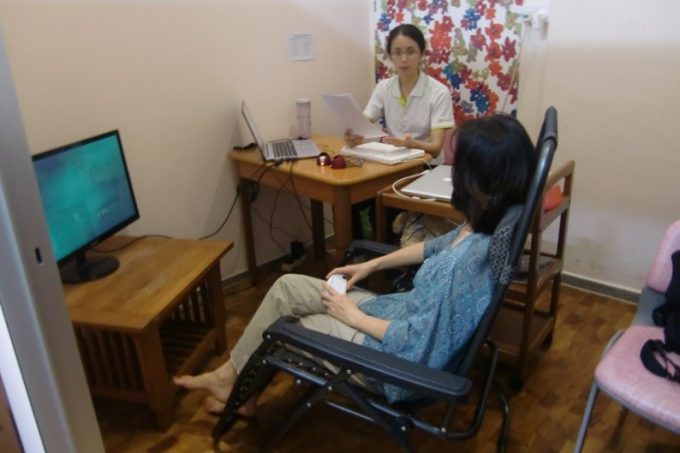Neurofeedback has been offered at Kampung Senang’s Family Learning Centre since October 2012. This new service for the community was launched at Kampung Senang’s 13th Anniversary Celebrations in September 2012 by the Minister of Education, Mr Heng Swee Keat.
We aim to be the community service provider of neurofeedback therapy for families of average income and the sandwiched generation in Singapore. We strive to improve the quality of life for those who may need this form of therapy but find it too expensive. .
Neurofeedback requires commitment and cooperation from the client. Significant improvements may come about in three to six months — approximately 40-60 sessions, with two to three sessions a week.
What is Neurofeedback? How does it work?
Neurofeedback trains the brain to work better by using feedback from the brain itself. While a person sits before a computer screen, his brain activity is monitored through sensors connected to the scalp. The information collected is converted to subtle disruptions or enhancements in sound, images and even vibrations that give the brain information about its activity through a video game, a movie, or a vibrating soft toy. Through such input, the brain is encouraged to optimize its functions.
Neurofeedback is now available in every state of the US where it started, and has spread to many countries in Europe, Australia and Asia. It has been available in Singapore since 1995.
What’s it for?
Neurofeedback is currently best known for helping children overcome learning disorders such as ADD/ADHD.
The following are some other conditions neurofeedback has shown success in the treatment for :
- Addictions
- Anger management, tantrums
- Anxiety, depression, stress, suicidal urges
- Asthma
- Autism spectrum disorder
- Bipolar disorder
- Dementia/Alzheimer’s disease
- Developmental delay in children
- Hypertension
- Insomnia
- Language learning
- Migraine
- Motor and vocal tics
- Multiple sclerosis
- Obsessive-compulsive behaviours
- Stress management
- Stroke recovery
- Tinnitus
Interestingly, neurofeedback isn’t just for people with such issues. Peak performers such as Fortune 500 CEOS, Olympic athletes, fine musicians and other top-notch professionals use neurofeedback to sharpen their performance and to stay calm and clear-headed under pressure.


Comments 0